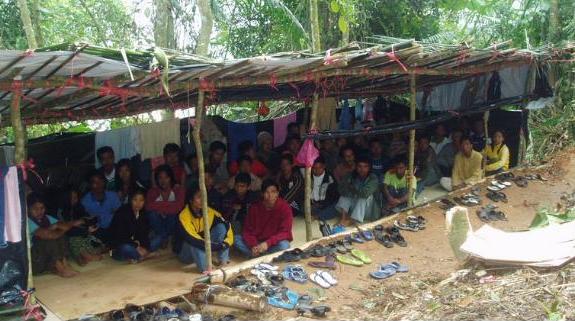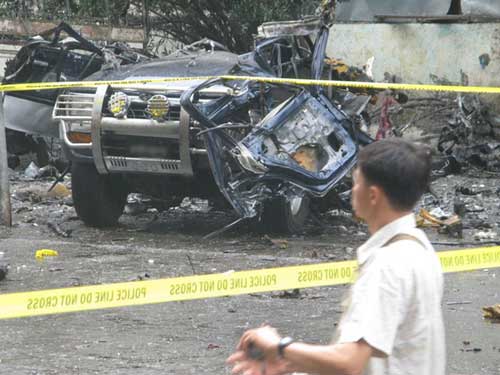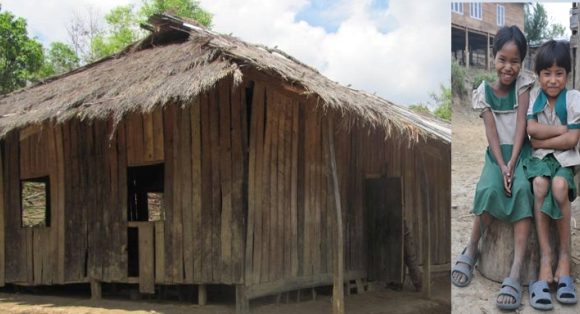Burma’s elections: the need to support and empower civil society

7 November 2010: Burma (or Myanmar, as it is also known) is holding general elections today, the first in 20 years. The Union Election Commission (UEC) approved 37 parties to contest the 1,163 seats at stake.
Many in the international community, particularly in the West, have dismissed the elections as neither free nor fair. The US Assistant Secretary of State for East Asian Kurt Campbell reportedly told a forum at the US Institute of Peace, “Everything we’ve seen to date suggests that the November elections will be without international legitimacy”. The UK ambassador to Burma Andrew Heyn has labeled the poll as a ‘missed opportunity’.
Exile and opposition groups, including the National League for Democracy, led by Nobel Peace Prize-winner, Daw Aung San Suu Kyi, boycotted the vote. They charged the 2008 approved constitution and enforcement of the election laws by the official UEC was biased. International media was even barred from covering the vote. However, others have advocated for participation as an alternative strategy of defiance.
In either case, experts and observers agree that the election process is neither free nor fair. Reports from inside the country suggested the military regime-backed parties Union Solidity and Development Party (USDP) and National Unity Party (NUP) have utilized coercion, intimidation, harassment and violence against civil society and volunteer groups who all have been mobilizing people to vote against the military proxy parties.
With 25% of the seats already constitutionally reserved for the military in all legislatures, the military proxy parties are likely to win the vast majority of the parliamentary seats. Noting all these factors, it is not hard to see why the elections are a deliberate attempt by themilitary regime to legitimize its rule and seal its power permanently in the Burma political sphere.
Yet despite this, limited options and opportunities may come out of the elections that could lead to change. A new group of elected officials will give Burma’s civil society groups avenues through which they can work toward a gradual and sustained political transition.
In its effort to encourage a meaningful democratic change, the international community can apply multi-faceted approach through such a relatively open political space and forum. As local representatives would primarily be concerned with building basic infrastructure and development in their constituencies, this in itself opens up an opportunity for international community to selectively engage, support and strengthen civil society and democratization efforts from the bottom up.
Historically civil society groups have played very important roles in social and culturaltransformation as well as in causing political development in Burma. National hero Aung San was a student leader who successfullyled the Burma independent movement. The 1970s protests and 1988 nationwide uprising were led by student leaders and organizations.
In this country, religious and voluntary grassroots groups have proved themselves to be agents of change, influencing the social welfare development and creating conditions forcivic participation in democratization process. The Buddhist monks braved to lead the saffron revolution in 2007. Religion institution in ethnic minorities’ areas such as in Chin State have played indispensable role in transforming the whole people into a democratic society. In recent years, civil society-driven, community-based and youth organizations are already making progress in community development and infrastructure building, with a view to meeting both the basic needs of their society and achieving sustainable social economic development.
It is not a surprise that this tradition has endured through and under the successive military dictatorships. The positive roles played by volunteer associations are understood as a necessary part of the Burmese society and have deeply embedded in theirhistory, culture and value system. Indeed, they continue to enjoy the outpouring support of the community as a whole.
A coordinated and multi-faceted approach in which the international community engages with the authorityand at the same time working with the opposition parties and the civil society groups will effectively capitalize the opportunity created and build the foundations for a transition to a democratic society thereby improving general education, living standards, and basic human rights.The policy actions will help create more economic opportunities which undoubtedly will promote a democratic culture, equality, respect, human dignity and a greater freedom in the Burmese society. This undoubtedly will promote civic participation in the process of democratization, and will gradually change the political culture of the people and eventually create a path for transforming a system into a genuine federalism based democracy.
What the elections seems to have offered is the opportunity for the international community and the opposition groups alike to adopt a better strategic planning and to playa smarter game with the Burmese authority by supporting further development of civil society groups and their networks that has been and will be the agent of change in Burma.
Such a comprehensive approach seems to be a more realistic and a viable solution for the Burmese people while a policy and an effort to cause a top-down drastic political change should also be continued and perhaps revitalized.
Salai Elaisa Vahnie
Chinland Guardian






